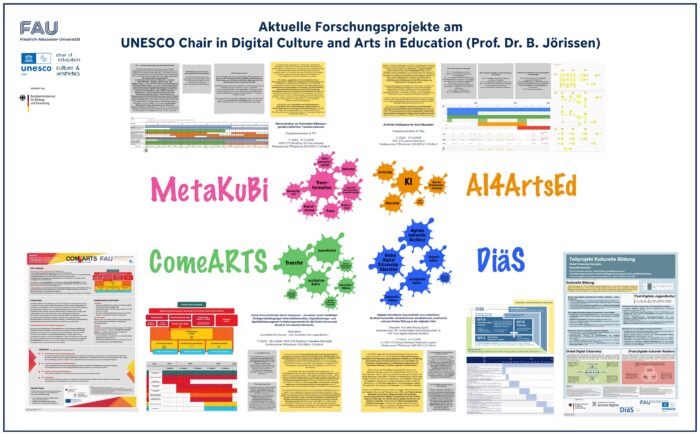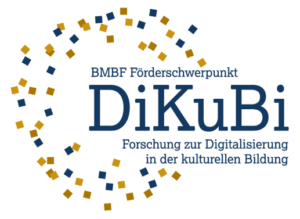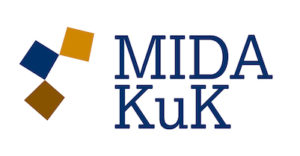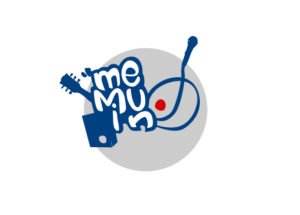ongoing projects

MetaKubi – Metavorhaben zur Kulturellen Bildung in gesellschaftlichen Transformationen – Meta-project on Culture and Arts Education in Societal Transformation (funded by BMBF – Federal Ministry of Eduction and Research; 2024-ongoing)
The meta project supports the funding projects and deals with overarching questions of research on Arts and Cultural Education in social transformations. It makes an independent contribution to their consolidation and further development as well as to the interaction between research and practice. It relies on communicative formats of stakeholder exchange to promote visibility and sustainability beyond the project. To this end, we record, aggregate and contextualise research topics, designs and results of the funded projects in the perspective of the transformation of Arts and Cultural Education against the background of societal transformation dynamics. From an overall view of the funding projects, we classify them in national and international (a) academic discourses on cultural education, (b) discourses on educational research and (c) dialogues with practitioners in cultural education. We communicate these internally with the funded projects as well as with other actors in practice and science in target group-specific formats. At the same time, we fundamentally reflect on the interaction between research projects and educational practice in order to further develop formats of this cooperation. The project partners are united by their interest in developing meta-theoretical, methodological and methodological questions for the further development of research on Arts and Cultural Education. This concerns questions of the interaction of research and practice in the research process, the methodological design of research syntheses and their theoretical framing.
Contact: franz.kraemer@fau.de
AI4ArtsEd – Artificial Intelligence for Arts Education (funded by BMBF – Federal Ministry of Eduction and Research; 2024-ongoing)
AI is transforming society and the world of work; it is becoming an increasingly important topic in education. This project explores the opportunities, conditions, and limitations of using artificial intelligence (AI) in culturally diverse and diversity-sensitive settings of cultural education (KuBi). In three subprojects – General Education (TPap), Computer Science (TPinf), and Art Education (TPkp) – creativity-oriented pedagogical AI practice research and computer science AI conception and programming closely cooperate. The project systematically involves artistic-pedagogical practitioners in the design process from the beginning, acting as a bridge between professional (quality-related, aesthetic, ethical, and value-based) pedagogical-practical implementation on the one hand and the implementation and training process of the computer science subproject on the other. The result of an approximately two-year participatory design process should be an open-source AI technology that explores the extent to which AI systems can already include artisticpedagogical specifications at their structural level under favorable real conditions. The focus is on a) the future applicability and added value of highly innovative technologies for cultural education, b) the range and limits of AI literacy of teachers and learners, and c) the overarching question of assessing and evaluating the transformation of pedagogical settings by complex non-human actors in the sense of pedagogical ethics and technology impact assessment.
ComeArts – fortbilden durch vernetzen:vernetzen durch fortbilden. Gelingensbedingungen diversitätssensibler, digitalisierungs- und digitalitätsbezogener Fortbildungsmodule für die Fächer Kunst und Musik in Community Networks – Training through networking: networking through training. Conditions for success of diversity-sensitive, digitalization and digitality-related training modules for the subjects of art and music in Community Networks (funded by BMBF – Federal Ministry of Eduction and Research; 2023-ongoing)
The “Come Arts” project aims at the research-based development and refinement of adaptive, subject-specific, diversity-sensitive, and digitalization-related (d3) professionalization concepts for teachers and multipliers in the fields of art and music, considering evidence-based criteria for effective training (including long-term effectiveness). The project systematically supports d3 competencies for designing learning-enhancing, challenging teaching-learning scenarios in primary and secondary education.
The initiative utilizes the cross-phase cooperation and exploitation structures of the Come In consortium (https://comein.nrw/portal/), but focuses more intensively on iteratively adapted development research through Design-Based Research (DBR) in subject-specific local, regional, and national community networks (Come Nets). This approach includes a broad science-practice-administration transfer: Each participating sub-project provides at least one comprehensive, adaptable, and diversity-sensitive training module suitable for various learning scenarios and needs. At the consortium level, the results are systematically integrated in an interdisciplinary manner.
The development research is based on existing, standardized assessments adaptable to other subjects and includes systematic peer reviews with experts from all functional areas of teacher training. The research explores the specific conditions for success relevant to the target group and content; it also analyzes the effectiveness of various transfer approaches within the complex multi-level system (usage scenarios). A focus is placed on North Rhine-Westphalia (NRW), where differentiated governance ensures dense, cross-state transfer that connects to nationwide developments. The documentation of project results as Open Educational Resources (OER) via a Come Arts portal also contributes to this.
The Erlangen UNESCO Chair is responsible for two part of the ComeArts project, both managed by Friederike Schmiedl as postdoctoral research associate:
The “ComeNet Across” project, in collaboration with Cologne, organizes interdisciplinary networking between music, art, and youth research. Its objective is to generate synergistic effects and transfer possibilities across the disciplines of art and music within the thematic complex of digitalization, digitality, diversity, and participation.
The “ComeNet Youth Culture” project, drawing on insights from post-digital youth culture research, develops a training module that addresses cross-disciplinary foundations and adaptation/scaling possibilities to/on other subjects in the context of formal and non-formal aesthetic education. The interdisciplinary aspects of the training modules are adapted for other school-relevant creative subjects (dramatic arts/school theater, dance/movement, crafts, and design), focusing not only on the scope and limits of adaptability but also on potential synergies.
Contact: friederike.schmiedl@fau.de
DiäS – Digital-ästhetische Souveränität von Lehrkräften als Basis kultureller, künstlerischer, musikalischer, poetischer und sportlicher Bildung in der digitalen Welt – Digital-aesthetic sovereignty of teachers as the foundation of cultural, artistic, musical, poetic, and sports education in the digital world (funded by BMBF – Federal Ministry of Eduction and Research; 2023-ongoing)
The DiäS project aims, with a digital-aesthetic focus, at the research-based and evidence-oriented further development, evaluation, and optimization of prototypical approaches for promoting and deepening teachers’ professional knowledge in cultural, artistic, musical, poetic, and sports education in the context of digital transformation.
The foundation is a sustainable networking of education research, practice, and administration. This envisages a consortium structure that is intended to be integrated into the ‘Competence Centre for Digital and Digitally Supported Teaching in Schools and Further Education’ at the federal level. The concepts, approaches, and transfer structures developed and successfully evaluated here are adapted in the DiäS project for the development and deepening of general and subject-specific digital competencies, dispositions, and attitudes of teachers.
In the spirit of the DPACK approach (Döbeli-Honegger, 2021), this involves addressing and critically developing a theoretical framework of ‘digital sovereignty’ (Blossfeld et al., 2018), which links the level of application-oriented digital competencies with the development of reflective attitudes in the context of (post-)digital structures and cultures. This approach forms the basis for conceptual developments in terms of digital global citizenship (UNESCO 2015, 2022) and digital cultural resilience (Jörissen, 2022; Jörissen et al., 2023).
DiäS “Cultural Education TPa”: The sub-project “Global Digital Citizenship Education” (Stephanie Leupert) focuses on reinterpreting “Global Citizenship” through a cultural studies lens, contextualizing it within a (post-)digital society, and translating it into a modular concept for teacher education. This concept aims to foster participation in and contribution to a (post-)digital global society as a foundation for sustainable and democratic societal development. Participation is understood in the light of Jacques Rancière’s concept of the ‘distribution of the sensible’ by the ‘part who has no part’. Here, Global Citizenship is conceived as ‘terrestrial’, active, relational, and post- or decolonial.
DiäS “Cultural Education TPb”: The sub-project “Post-Digital Cultural Resilience” (Teresa Dehling), building upon current theoretical work at the Erlangen UNESCO Chair, develops a modular concept for teacher education that conveys cultural resilience as a sustainability-oriented collective transformative educational process. The focus is on transformations in the relationship between Rooting, Resourcefulness, and Resistance under digital and post-digital conditions, with special attention to the opportunities and challenges of post-migration society.
Contact: teresa.dehling@fau.de; stephanie.leupert@fau.de
finalized projects
Libraries, Digitalization and Arts and Cultural Education in Rural Regions: Conditions and Models for the Development of the Library as a Cultural Site in the Context of Post-digital Youth Culture (BiDiPeri, BMBF, 2019-2022)

How can rural spaces be developed in such a way that they also offer a culturally attractive living environment for “digital natives”? How can libraries become digital innovation engines in peripheral spaces? With these questions, the BiDiPeri research project addresses the socially pressing question of how cultural and educational intervention can help compensate for the structural backwardness of rural areas, which often leads to rural exodus, especially among younger generations. Which offers of (post-) digital Arts and Cultural Education can create equivalence in peripheral areas and, if necessary, promote regional strengths?
Digital Arta & Cultural Education – a Meta-Project (DiKuBi-Meta, BMBF, 2017-2022)

We are carrying out the DiKuBi-Meta meta project in two subprojects together with our Nuremberg colleague Stephan Kröner (Subproject 2). The task of this project is 1) to theoretically model, contextualise and assess the results of the funded projects of the BMBF funding guideline “Digitisation in Cultural Education” with regard to their social and pedagogical significance and to disseminate them (Subproject 1), as well as 2) to advance the qualitative (Subproject 1) and quantitative (Subproject 2) development of methods and to network the projects in a meaningful way. https://www.dikubi-meta.fau.de/
Musical Interface Designs – Augmented Creativity and Connectivity (MIDAKuK, BMBF, 2017-2021)

Our research project “Musical Interface Designs – Augmented Creativity and Connectivity” (MIDAKuK) explores new hybrid (digital-material) instruments and “music-making things” from a design theoretical perspective. These include the Eigenharp Tau and Pico, Ableton Push2/Live, Roli Seaboard/Blocks, the “electro-organic” Aframe Drum and more. https://www.dikubi-meta.fau.de/midakuk/
“Condensed happiness”? Several-day music pedagogical interventions: Determinants of participation, effective design characteristics and effects on competencies and personality development (MEMU-IN, BMBF, 2016-2019)

The project embraces two sub-projects: Our Subproject 2 (Kröner/Hasselhorn/Jörissen) conducts a series of music pedagogical field experiments on determinants and effects of music pedagogical interventions within the framework of a complex mixed methodology design.
(Post-) Digital Cultural Youth Worlds – Development of New Methodological Instruments for the Development of Research on Arts and Cultural Education in the Digital and Post-Digital World (DiKuJu, BMBF, 2016-2019)
The project examines in detail how the digital media change has affected the current aesthetic and artistic practices of young people. It combines qualitative and quantitative methods for this purpose. In addition to expert interviews and a BarCamp, which will be used for the first time as a survey instrument, a survey in the form of 1200 face-to-face interviews has been conducted.[/vc_column_text][/vc_column][/vc_row]